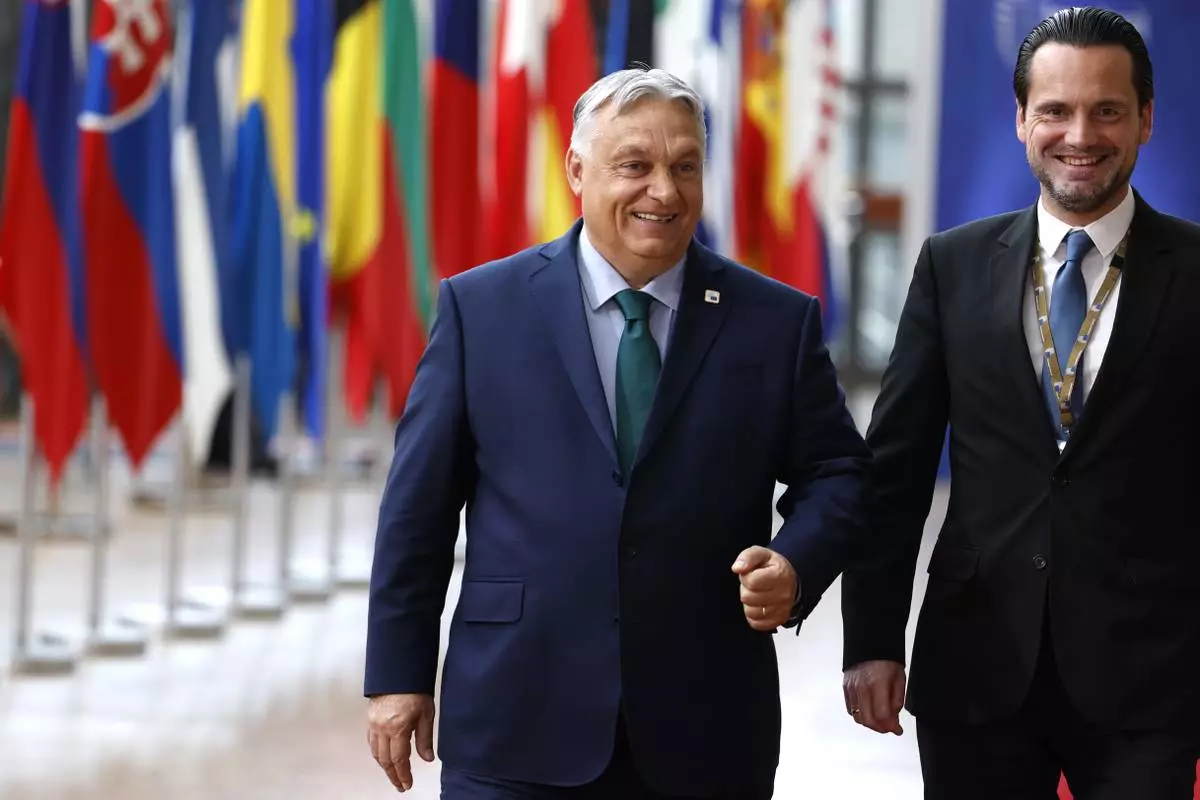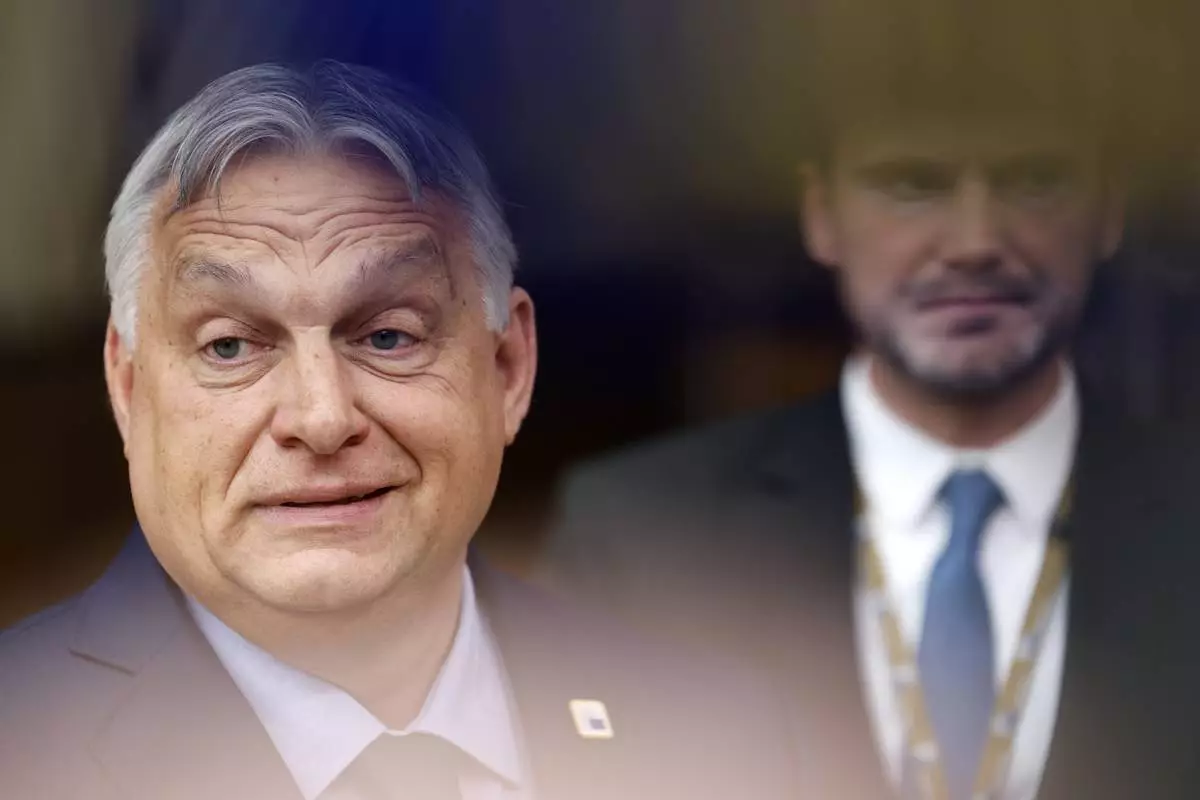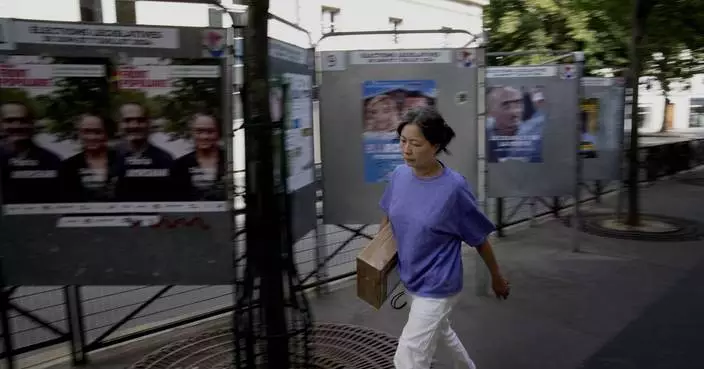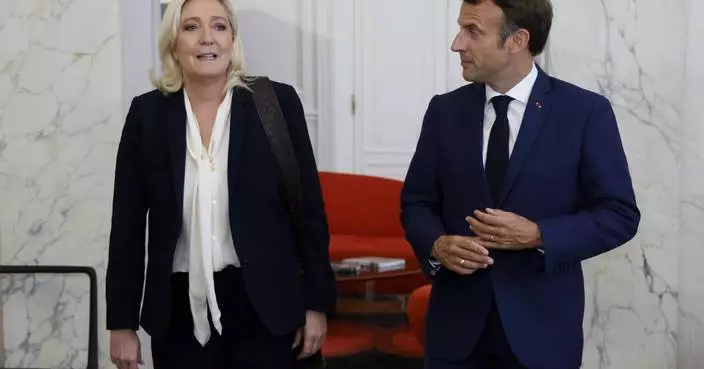It could be another year or more before a man accused in the 2022 stabbing deaths of four University of Idaho students goes to trial.
A judge and attorneys discussed Thursday starting Bryan Kohberger’s trial sometime in June 2025, nearly three years after the killings shocked the small university town.
Idaho Judge John Judge said he wants to set aside two weeks for jury selection, two months for the trial and two weeks at the end for sentencing and other matters if Kohberger is convicted.
“I think already we’re about 13 months from the arraignment, and I think at this point ... we’re getting to a point of diminishing returns,” Judge said after he sent a proposed schedule to attorneys last Friday.
Lawyers for both sides generally agreed with the schedule.
A motion to move the trial from Moscow, Idaho — the small college town where students were killed — was tabled until August. Kohberger’s attorneys fear publicity would prevent a fair trial in Latah County.
Kohberger, a former criminal justice student at Washington State University in nearby Pullman, Washington, faces four counts of murder in the deaths of Ethan Chapin, Xana Kernodle, Madison Mogen and Kaylee Goncalves.
They were killed sometime in the early morning hours of Nov. 13, 2022, in a rental house not too far from the University of Idaho campus.
Police arrested Kohberger six weeks later at his parents’ home in Pennsylvania, where he was spending winter break.
Investigators said they linked Kohberger to the crime using DNA found on a knife sheath at the scene, surveillance videos and cellphone data.
Kohberger’s defense lawyers have said in court documents that he was out driving alone the night of the killings, something he did often. They also intend to call a witness in cellphone and cell tower data to show that the night of the deaths, he did not travel east of the main road connecting Pullman and Moscow.
Prosecutors said they will seek the death penalty if Kohberger is convicted.
Thiessen reported from Anchorage, Alaska.

FILE - Sunlight breaks through trees as heavy equipment works to demolish the final pieces of the foundation of the house where four University of Idaho students were killed in 2022 on Thursday, Dec. 28, 2023, in Moscow, Idaho. Students Ethan Chapin, Xana Kernodle, Madison Mogen and Kaylee Goncalves were fatally stabbed there in November 2022. Attorneys for Bryan Kohberger, the man charged with stabbing four University of Idaho students to death, are expected to ask a judge to move the trial away from the rural college town where the slayings occurred. (AP Photo/Ted S. Warren, File)

FILE - A private security officer sits in a vehicle on Jan. 3, 2023, in front of the house in Moscow, Idaho where four University of Idaho students were killed in November 2022. The house was demolished in 2023. Attorneys for Bryan Kohberger, the man charged with stabbing four University of Idaho students to death, are expected to ask a judge to move the trial away from the rural college town where the slayings occurred. (AP Photo/Ted S. Warren, File)

FILE - A flyer seeking information about the killings of four University of Idaho students who were found dead is displayed on a table along with buttons and bracelets on Nov. 30, 2022, during a vigil in memory of the victims in Moscow, Idaho. Attorneys for Bryan Kohberger, the man charged with stabbing four University of Idaho students to death, are expected to ask a judge to move the trial away from the rural college town where the slayings occurred. (AP Photo/Ted S. Warren, File)

FILE - Bryan Kohberger, right, is escorted into a courtroom for a hearing in Latah County District Court, Sept. 13, 2023, in Moscow, Idaho. Attorneys for Kohberger, the man charged with stabbing four University of Idaho students to death, are expected to ask a judge to move the trial away from the rural college town where the slayings occurred. (AP Photo/Ted S. Warren, Pool, File)
BUDAPEST, Hungary (AP) — When Hungary takes over the helm of the European Union on July 1, many politicians in Brussels will have the same thing on their minds: whether populist Prime Minister Viktor Orbán will use the role to further his reputation as the bloc’s main spoiler.
Orbán in recent years has seemed to relish opportunities to block, water down or delay key EU decisions, routinely going against the grain of most other leaders on issues like the war in Ukraine, relations with Russia and China, and efforts to defend democracy and the rule of law.
His public opposition to EU policies and stances has long frustrated his partners in the bloc and pushed him to the margins of the continent's mainstream. Hungary's motto for its presidency — Make Europe Great Again — raised eyebrows for its resemblance to the famous tagline of former U.S. President Donald Trump.
The EU presidency rotates among its member countries, and while the post holds little real power, it does allow countries to put their priorities high on Europe’s agenda.
Now, as Hungary resides over the 27-nation bloc for the coming six months, it will likely keep up its anti-EU rhetoric, said Dorka Takácsy, a research fellow at the Centre for Euro-Atlantic Integration and Democracy.
But the timeline of its presidency — beginning with a lengthy summer break and a transitional period of forming a new European Parliament and executive commission — will give Budapest few opportunities to derail the bloc’s priorities significantly, she said.
"These six months are altogether not that long, which means that ... Hungary cannot do potentially much harm, even according to the critics," Takácsy said.
As Hungary's takeover approached, leaders in Brussels rushed to push through important policy decisions while Belgium was still at the helm. On Tuesday, for example, the EU launched membership talks with candidate countries Ukraine and Moldova.
Orbán has vocally opposed and threatened to block Ukraine's candidacy. His government has also held up EU efforts to supply Ukraine with badly needed funding.
Yet with Ukraine's accession process already initiated, Takácsy said, the most Hungary can do now under its presidency is delay further steps toward its EU membership, a process that in any scenario is likely to take many years.
“All the meaningful steps from the European side regarding Ukraine were already done," she said. “(A Hungarian) delay, according to most European leaders, is already calculated and being taken into consideration as if it’s something which is most likely going to happen.”
Orbán has long been accused of dismantling democratic institutions and violating the EU's standards on the rule of law, leading the bloc's legislature in May to call for the presidency to be taken out of Hungary's hands entirely.
In a resolution, the EU parliament argued that democratic deficiencies raised questions of “how Hungary will be able to credibly fulfill this task in 2024.” Two years ago, the European Commission froze billions of euros in funds to Budapest over concerns about democratic backsliding by the government.
But some Hungarian officials have stressed that they plan to act constructively during their presidency. Last week, Hungarian minister for EU affairs János Bóka told reporters that “we will be honest brokers, working loyally with all Member States and institutions.”
“Carrying out the functions of the presidency is our obligation, but we see it primarily as an opportunity," Bóka said. “At the beginning of the new institutional cycle, we can initiate a debate and set the agenda on issues that are important to us.”
Among the issues that Hungary has prioritized in its seven-point program is the enlargement of the EU in the Western Balkans for countries like Serbia, North Macedonia, Montenegro and Albania through a “merit-based” procedure.
Budapest has also vowed to strengthen the EU's external borders and step up against illegal immigration, and to address “demographic challenges” that involve an aging population in Europe — two priorities that reflect Orbán's image as a staunch opponent of immigration and defender of family values.
But after years of campaigns portraying the EU as forcing unwanted policies on Hungary — Orbán has repeatedly compared membership in the bloc to more than four decades of Soviet occupation of his country — he may find it difficult to restore goodwill among his EU partners.
“The Hungarian government has been using the image of Brussels as a punching bag,” Takácsy said. “Now it’s somewhat difficult to communicate that for these brief six months, we are basically the Brussels that Hungary is waging war and a freedom fight against.”
With some words of advice for Orbán before Hungary assumes its role, the prime minister of Belgium said the position “does not mean that you are the boss of Europe.”
"The presidency means that you're the one that has to make the compromise,” Alexander De Croo said to reporters in Brussels on Thursday. “Being in the position where you have to make the compromise is an interesting position to be in at least once in your life, so I can definitely recommend it to Mr. Orbán.”

FILE - Hungary's Prime Minister Viktor Orban, left, arrives for an EU summit in Brussels, June 27, 2024. When Hungary takes over the helm of the European Union on Monday July 1, 2024 many politicians in Brussels will have the same thing on their minds: whether populist Prime Minister Viktor Orbán will use the role to further his reputation as the bloc’s main spoiler. (AP Photo/Geert Vanden Wijngaert, File)

FILE - Hungary's Prime Minister Viktor Orban, left, arrives for an EU summit in Brussels, June 27, 2024. When Hungary takes over the helm of the European Union on Monday July 1, 2024 many politicians in Brussels will have the same thing on their minds: whether populist Prime Minister Viktor Orbán will use the role to further his reputation as the bloc’s main spoiler. (AP Photo/Geert Vanden Wijngaert, File)















